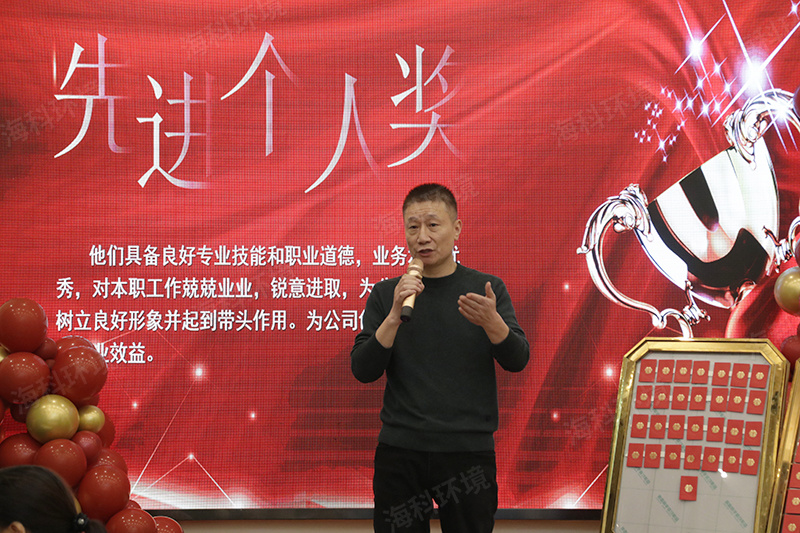ENERGY SAVING AND ENVIRONMENTAL PROTECTION EQUIPMENT AND ENGINEERING GENERAL CONTRACTING
Understanding Industrial Bag Filters: Essential Components for Efficient Air Filtration
2025-07-14
Industrial bag filters play a crucial role in air purification systems, particularly in the context of dust collection and particulate matter removal. They are integral components used in various industries, including manufacturing, food processing, pharmaceuticals, and more. These filters help in maintaining air quality by capturing airborne contaminants, thus ensuring a healthier working environ
Industrial bag filters play a crucial role in air purification systems, particularly in the context of dust collection and particulate matter removal. They are integral components used in various industries, including manufacturing, food processing, pharmaceuticals, and more. These filters help in maintaining air quality by capturing airborne contaminants, thus ensuring a healthier working environment and compliance with environmental regulations.
The primary function of an industrial bag filter is to collect and retain dust, smoke, and other particulates from the air. Typically constructed from durable fabrics or materials, these filters are designed to withstand harsh operating conditions while providing efficient filtration performance. The filtration process occurs as contaminated air passes through the filter material, where particles are trapped, allowing clean air to be released back into the environment.
Industrial bag filters can be categorized into several types based on their design and application. The most common types include envelope bags, pocket filters, and cylindrical bags. Each type has unique features that make it suitable for specific applications. For example, envelope bags are often used in high dust-load applications due to their larger surface area, which enhances dust-holding capacity and extends bag life.
The working principle of an industrial bag filter involves a combination of mechanical and electrostatic forces. Initially, larger particles are captured through inertial impaction, followed by smaller particles that adhere to the filter media via electrostatic attraction. Over time, as dust accumulates on the filter surface, the resistance to airflow increases, necessitating regular maintenance or replacement of the filter bags to ensure optimal performance.
Furthermore, the efficiency of an industrial bag filter is often influenced by factors such as air-to-cloth ratio, filter media material, and the type of dust being collected. Selecting the appropriate filter design and material is essential for maximizing filtration efficiency and minimizing energy consumption during the dust collection process.
In addition to their air purification benefits, industrial bag filters can contribute to overall operational efficiency. By effectively removing particulates from the air, these filters help prevent equipment wear and tear, reduce maintenance costs, and improve workplace safety. Moreover, maintaining proper air quality can enhance employee productivity and health.
In conclusion, industrial bag filters are vital components in air purification systems used across various industries. Their ability to efficiently capture and retain airborne particulates ensures cleaner air and compliance with health and safety standards. Understanding the different types and working principles of these filters can help businesses make informed decisions regarding their air filtration needs, ultimately leading to improved operational performance and a healthier work environment.
The primary function of an industrial bag filter is to collect and retain dust, smoke, and other particulates from the air. Typically constructed from durable fabrics or materials, these filters are designed to withstand harsh operating conditions while providing efficient filtration performance. The filtration process occurs as contaminated air passes through the filter material, where particles are trapped, allowing clean air to be released back into the environment.
Industrial bag filters can be categorized into several types based on their design and application. The most common types include envelope bags, pocket filters, and cylindrical bags. Each type has unique features that make it suitable for specific applications. For example, envelope bags are often used in high dust-load applications due to their larger surface area, which enhances dust-holding capacity and extends bag life.
The working principle of an industrial bag filter involves a combination of mechanical and electrostatic forces. Initially, larger particles are captured through inertial impaction, followed by smaller particles that adhere to the filter media via electrostatic attraction. Over time, as dust accumulates on the filter surface, the resistance to airflow increases, necessitating regular maintenance or replacement of the filter bags to ensure optimal performance.
Furthermore, the efficiency of an industrial bag filter is often influenced by factors such as air-to-cloth ratio, filter media material, and the type of dust being collected. Selecting the appropriate filter design and material is essential for maximizing filtration efficiency and minimizing energy consumption during the dust collection process.
In addition to their air purification benefits, industrial bag filters can contribute to overall operational efficiency. By effectively removing particulates from the air, these filters help prevent equipment wear and tear, reduce maintenance costs, and improve workplace safety. Moreover, maintaining proper air quality can enhance employee productivity and health.
In conclusion, industrial bag filters are vital components in air purification systems used across various industries. Their ability to efficiently capture and retain airborne particulates ensures cleaner air and compliance with health and safety standards. Understanding the different types and working principles of these filters can help businesses make informed decisions regarding their air filtration needs, ultimately leading to improved operational performance and a healthier work environment.
Industrial bag filter
RELEVANT INFORMATION
The 2023 Annual Meeting of Jiangsu Haike Environmental Technology Engineering Co., Ltd
2024-01-08
The 2023 Annual Meeting of Jiangsu Haike Environmental Technology Engineering Co., Ltd


 English
English Русский
Русский بالعربية
بالعربية

